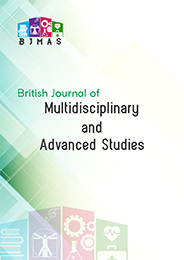Parenting Education for Holistic Child Development in Nigeria
DOI:
https://doi.org/10.37745/04959Abstract
This paper examines the role of Parenting Education in fostering holistic child development in Nigeria, emphasizing the need for informed parental involvement in children’s physical, emotional, cognitive, social and spiritual growth. The paper focuses on assessing the level of knowledge and practices among Nigerian parents regarding holistic parenting and its impact on child development outcomes. The objectives of the paper are to examine the influence of Parenting Education on child development; assess parental knowledge and skills related to effective parenting practices; identify barriers to parental involvement in child development, including socio-cultural and economic factors; and recommend strategies for enhancing Parenting Education for holistic development. The study adopts a qualitative methodology using a literature review approach. Data were gathered from scholarly journals, academic books, policy documents, and multimedia sources relevant to parenting and child development in Nigeria. The paper shows that parenting practices influence academic performance, children’s health, and emotional well-being. Parents with access to Parenting Education are more likely to provide a nurturing environment, support their children’s education and reduce developmental risks such as stunting or behavioral issues. The paper concludes that, Parenting Education is an essential tool for enhancing holistic child development in Nigeria. It recommended that effective implementation of community-based parenting programs, the inclusion of fathers in child-rearing education and culturally sensitive interventions are essential to equip parents with the knowledge and skills needed to support their children’s growth.












